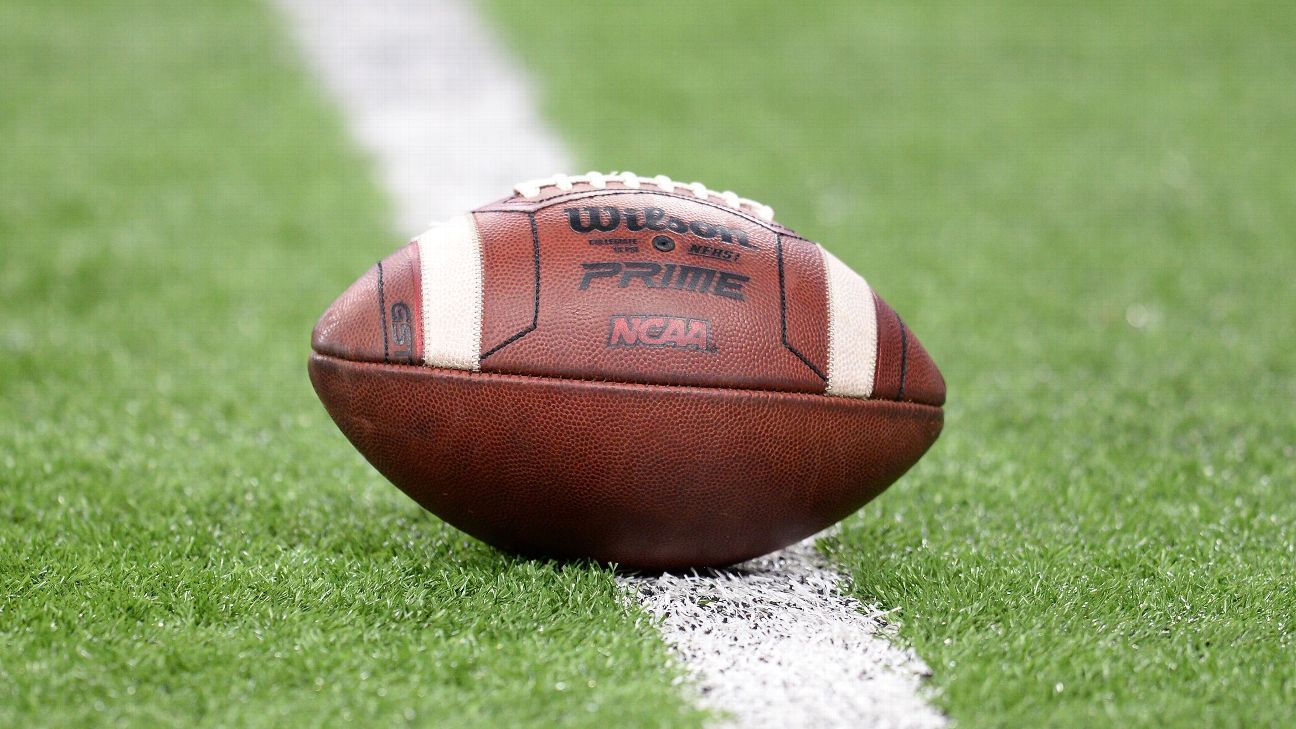WASHINGTON — An overwhelming majority of Division I athletic directors at the annual fall LEAD1 meeting on Wednesday expressed a “strong preference” to keep FBS football under the NCAA if it can be more streamlined and less bureaucratic.
Tom McMillen, the CEO and president of the organization representing the 131 athletic directors in the FBS, said there were a total of 105 ADs who participated in the closed-door discussions (about 80 in-person and the rest virtually), and that by a show of hands in the room, it was clear they prefer the NCAA continues its oversight of the most popular sport in college athletics.
“Rarely do we have such consensus on an issue,” McMillen said. “It was doubly reaffirmed today that the status quo was not acceptable, and that there was a strong, very strong preference for a model in the NCAA that is extremely streamlined and much less bureaucratic. That’s a lot of details to be worked out in that, but a much [more] streamlined governance within the NCAA. And if that can’t be accomplished, move it to the outside.”
FBS football is currently the only collegiate sport that is governed by the NCAA but runs its own national championship through the College Football Playoff. The NCAA deals with issues such as rules, officiating, concussion litigation and enforcement, but doesn’t receive any money from the CFP. The idea of separating FBS football from the NCAA began in December 2020, when the Knight Commission on Intercollegiate Athletics proposed it.
The commission has continued to back its recommendation for the NCAA to “govern all other sports in a reorganized Division I governance, and schools with FBS football programs would remain part of the NCAA in all other sports except football.”
The idea had gained traction, especially as college athletics has undergone sweeping changes, including name, image and likeness rights for athletes, another round of conference realignment, and the recent approval of a 12-team playoff in the CFP.
At the meeting on Wednesday, though, McMillen said outgoing NCAA chief financial officer Kathleen McNeely gave a presentation to the group that revealed the NCAA spends $65 million on various expenses such as catastrophic insurance, and administrative expenses.
“That does not include any extraordinary costs for legal,” McMillen said. “As you know, the NCAA is the legal shield. It’s a substantial number. I don’t think everybody knew that.”
There was another presentation about how the current NCAA structure works, which took about 30 minutes to explain the multitude of layers in the current system.
“After all the breakout groups,” McMillen said, “[the ADs] came to the conclusion there’s a better way to run a railroad within the NCAA.”
LEAD1 doesn’t have authority to change NCAA rules or restructure college football, but the closed-door meetings were a chance to further discussions about the sport’s future. McMillen said they hope to get about 100 athletic directors to sign a letter LEAD1 will send to the NCAA’s transformation committee, the NCAA and the individual conferences.
West Virginia athletic director Shane Lyons, a member of the NCAA’s transformation committee, said ADs agree there are things the NCAA does well, specifically running championships, oversight of health and safety, and sport-specific rules.
“I think there’s a lot of discussions,” Lyons said. “I think the transformation committee will take that discussion into their meetings and look at it and continue to try to formulate something that by the end of the year, hopefully we can look at and vote on.”
SEC commissioner Greg Sankey, who is a co-chair of the NCAA’s transformation committee, pulled an index card out of his suit breast pocket and rattled off topics such as “membership, governance, student-athlete experience” as points the transformation committee is tackling.
“The transformation committee hasn’t spent a lot of time dedicated to FBS governance at this point,” Sankey said. “This was one of those opportunities for input.”
Sankey has said the problems currently facing college athletics won’t disappear simply by moving FBS football out of the NCAA and under the purview of the CFP. He has questioned what athletic leaders would tell their Olympic sport athletes when attempting to explain why football would be separated and they wouldn’t be — a message he reiterated to the athletic directors here.
As co-chair of the NCAA’s transformation committee with Sankey, Ohio athletic director Julie Cromer said the committee is trying to fulfill its charge of envisioning how Division I “continues with everyone under one big tent.”
“I certainly understand some of the challenges and tensions that you’re hearing about from my colleagues here,” she said. “At the same time, I think we have a structure in the NCAA that has the potential to work. So I think we’ll continue to have the dialogue and see where it leads.”
Iowa athletic director Gary Barta said that if college football remains in the NCAA, the governance structure of it has to improve.
“I think there’s more consensus than there has been in the past,” Barta said. “And really, if you think about it, a lot of this was building during COVID. So this is one of the first opportunities we’ve had to all be together to focus on what’s best for college football going forward. … We’re really digging in to say, college football under the NCAA, how do we make that better? How do we streamline that? If bureaucracy is a roadblock, how do we break through bureaucracy? … How do we make college football better?”
